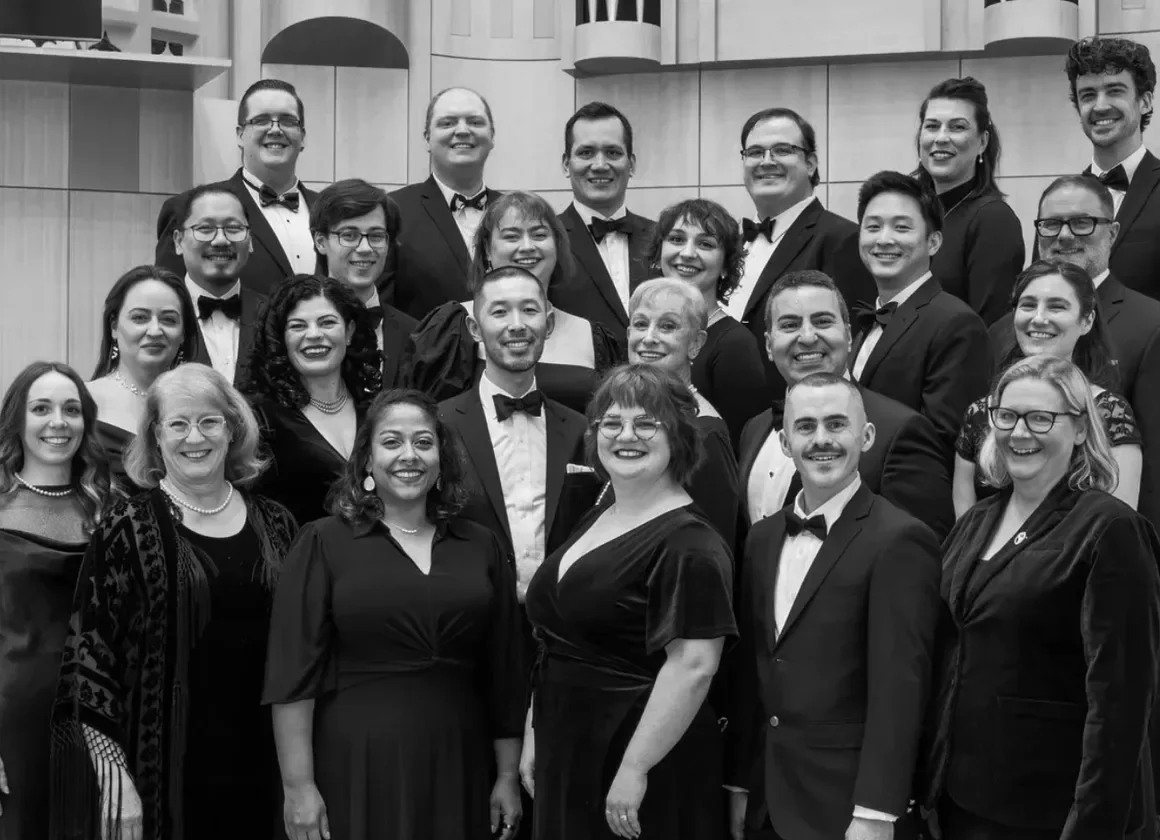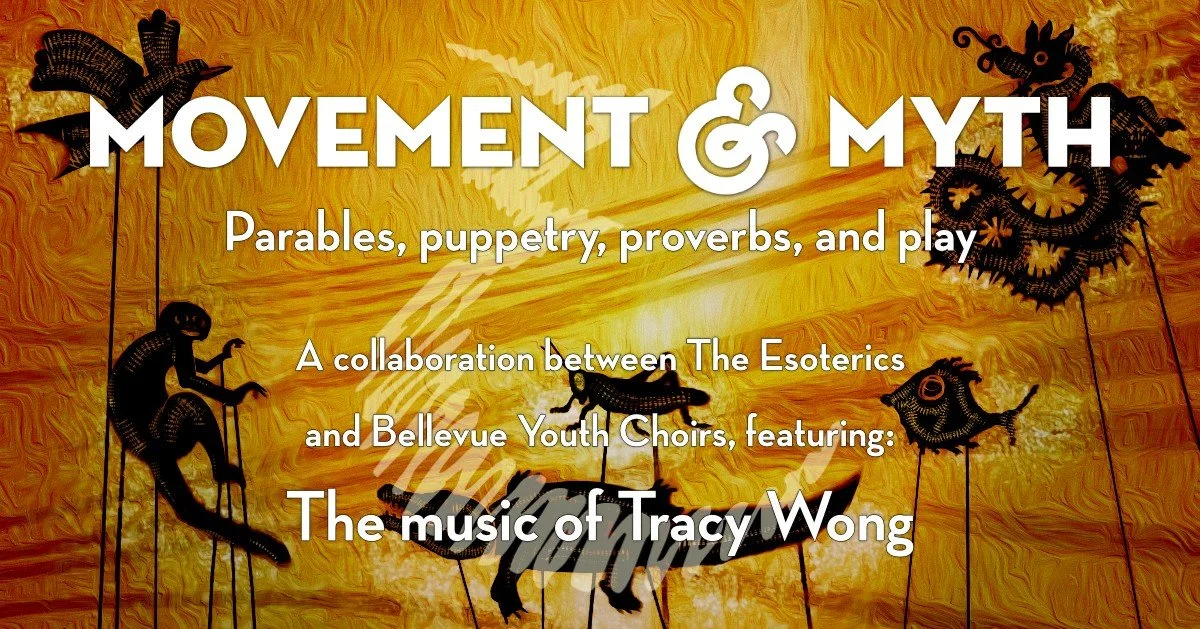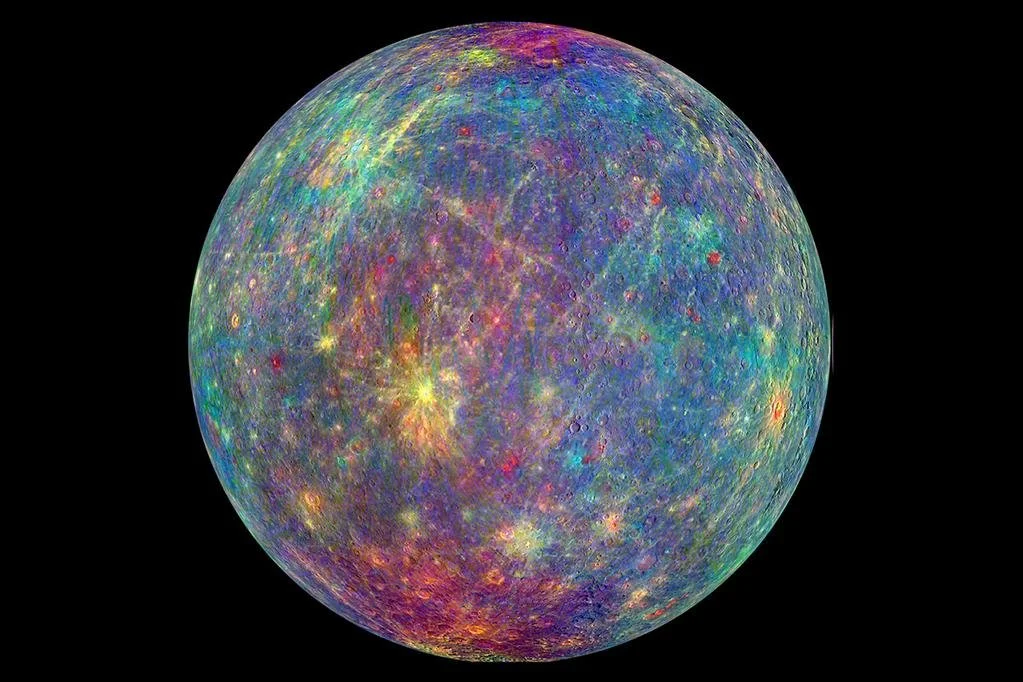THE ESOTERICS
A creative community
of virtuosic voices
The Esoterics is a Seattle-based
nonprofit vocal ensemble
dedicated to performing
contemporary a cappella music
from around the world.
Welcome
The Esoterics acknowledges that we are on the traditional land of the first people of Seattle, the Duwamish People, past and present, and honor with gratitude the land itself and the Duwamish Tribe.
The Esoterics also recognizes that white supremacy, racism, homophobia, and transphobia must come to an end, and we support efforts to reform policy to ensure a safe and equal existence for all Black, Indigenous, People of Color (BIPOC), as well as for our entire LGBTQIA+ community. We are committed to providing a safe place for ALL people to connect, reflect, and heal.
Upcoming Events
MOVEMENT & MYTH
Parables, puppetry, proverbs, and play
Saturday | 14 Mar 2026 | 8pm
Plymouth United Church of Christ
1217 6th Avenue | Seattle
Sunday | 15 Mar 2026 | 3pm
Holy Spirit Lutheran Church
10021 NE 124th Street | Kirkland
This March, The Esoterics is thrilled to be kicking off its 33rd concert season with Bellevue Youth Choirs! This exciting collaboration was first suggested by Kayla Johnson, the director of BYC, who has also sung for several seasons with The Esoterics. Both directors have been fascinated by the music of the Malaysian-Canadian composer, Tracy Wong, and approached her about programming a concert for three choirs of different ages – singing in tandem as well as together. On this concert weekend, the two ensembles of BYC (Lyrica and Cantare) and The Esoterics will be joined by percussionist James Doyle and pianist Nathan Shiu to present a concert of twenty different choral works by Tracy Wong, who will be joining us from Ontario.
Dr Wong hails from Malaysia and is a choral conductor, music educator, composer, vocalist, and pianist. She is passionate about choral education and strives to create compositions that not only provide unique aural experiences, but also teach young singers about to develop vocal technique, musicianship skills, and artistry.
In a continuous search to define her Chinese-Malaysian-Canadian identity, Tracy’s music evinces a truly remarkable blending of influences. Her texts come from sources as disparate as Bihzhu and Fairuz Fee Tauhid (a Malaysian pop singer and dancer), the Filipino writers Kitbielle Pasagui and Joey Gianan Vargas, Hildegard of Bingen, French Canadian folk music, and Marianas Trench, the pop-rock band from Vancouver.
Wong has drawn inspiration from traditional Malay puppet theater, half-moon kites, allegories, and proverbs – including a host of different animals – fish, monkeys, crocodiles, grasshoppers, dragons, and swallows – as well as a cast of colorful characters: greedy princes, humble sailors, fierce guardians, industrious students, vengeful widows, and invisible spirits.
Each of Tracy’s songs includes a moment of transformation: finding confidence, keeping promises, facing challenges, healing brokenness, acknowledging interdependence, coming together, sharing community, creating memories, treasuring stillness, choosing wisdom. Through each of these transformations, singing is the benevolent force that lifts everyone up and inspires us to change.
Tracy is the Assistant Professor of Choral Studies at Western University, where she directs two ensembles, as well as the Grand Philharmonic Youth Choir. She holds a DMA and MM in Choral Conducting from the University of Toronto, and has received numerous awards for excellence in teaching and conducting. She is also an active clinician and educator, and has enjoyed premieres around the world – especially in Europe and Southeast Asia.
We are so excited to welcome Tracy to Seattle for the weekend of these concerts! Please join The Esoterics and Bellevue Youth Choirs as we celebrate MOVEMENT & MYTH, a concert of parables, puppetry, proverbs, and play.
Join our mailing list
Sign up to hear about upcoming events.





